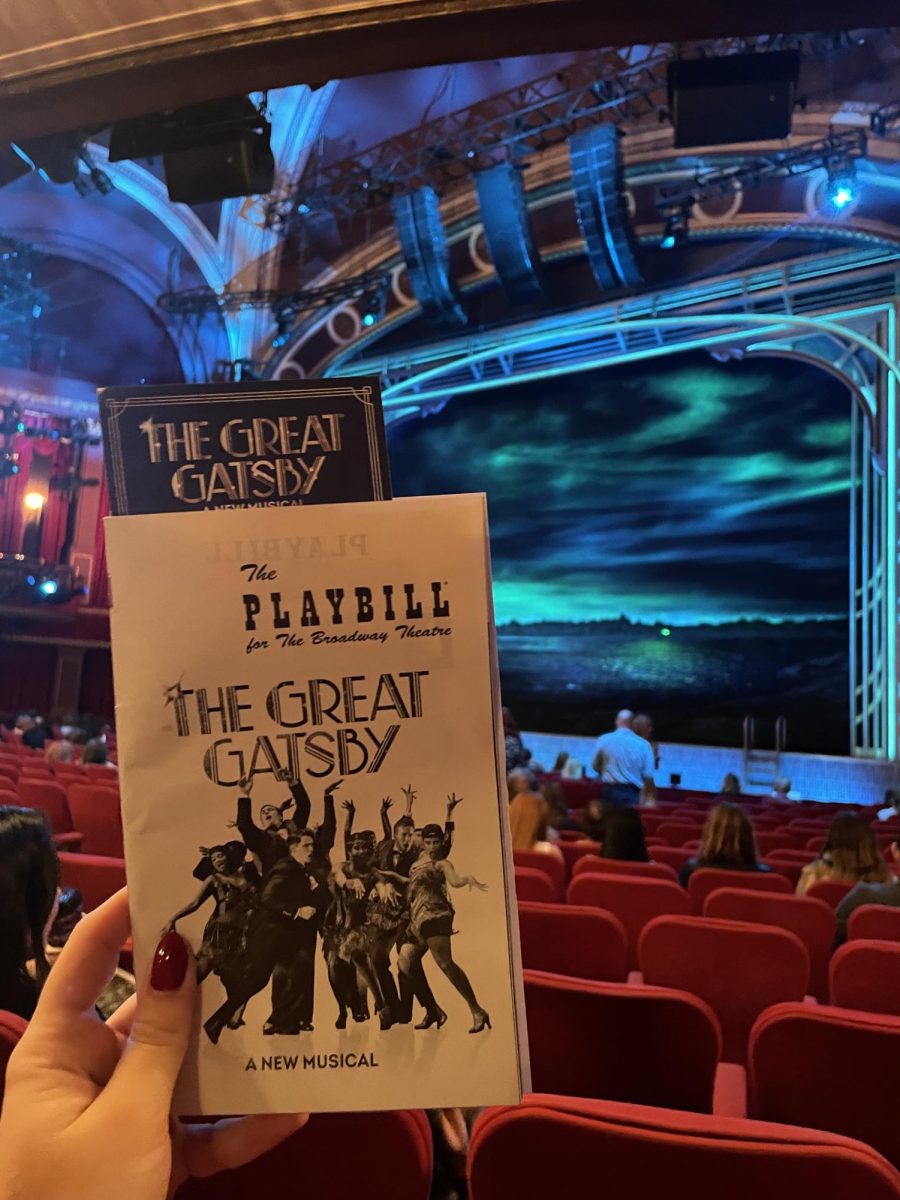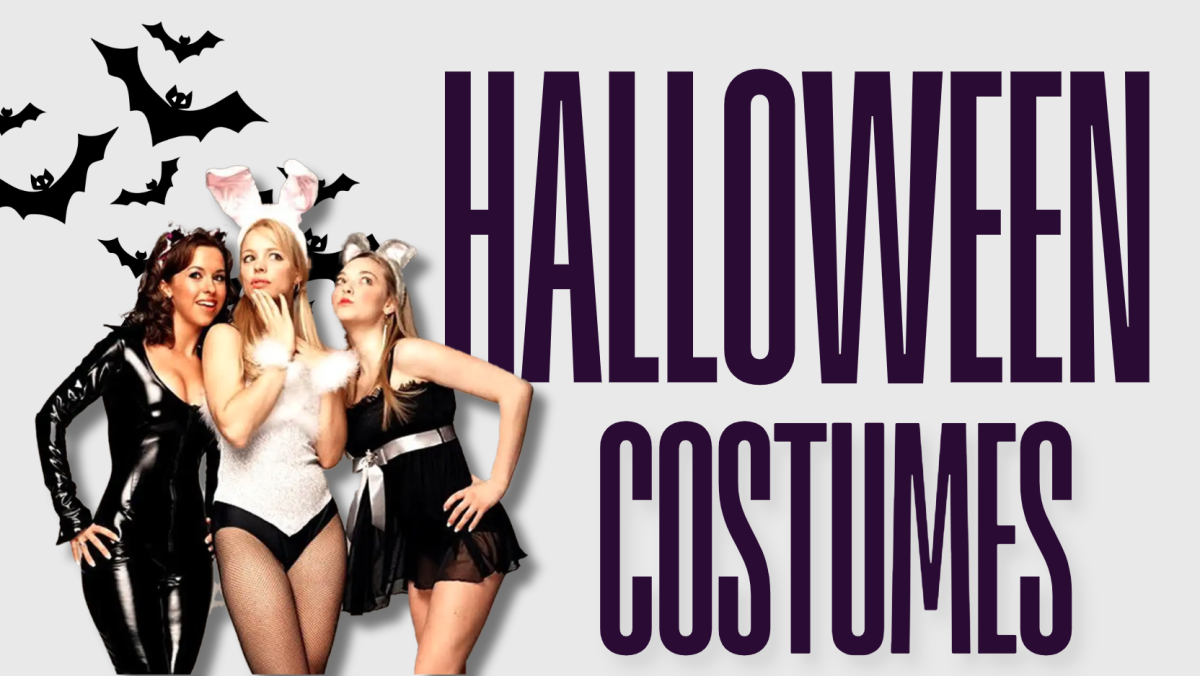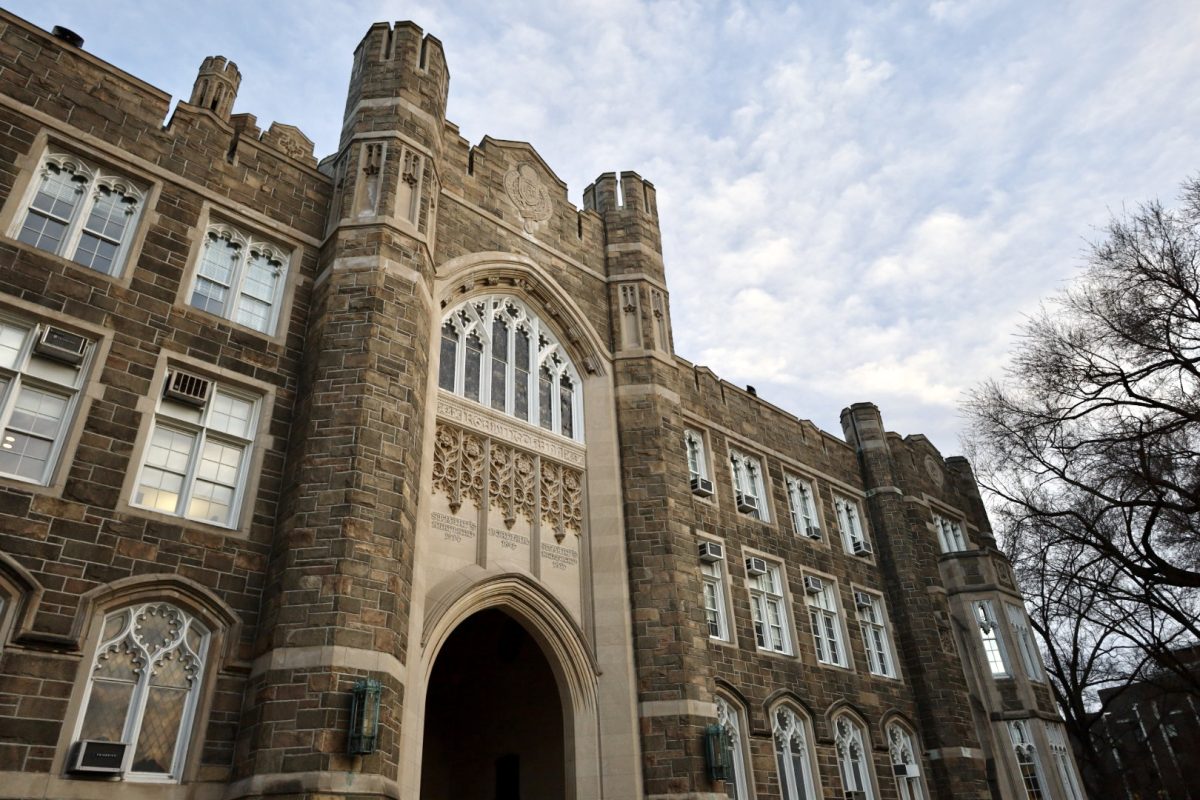Another dazzling adaptation of F. Scott Fitzgerald’s iconic 1925 story “The Great Gatsby” has made its way to the Broadway stage. This great American novel set in the 1920s is one of my favorite tales despite having read it as a high school requirement, so I was excited to experience both the extravagance of the time period and the substance of the story’s themes in real time. Sadly, the stage adaptation only does one of these things right.
I will preface that this week is the last of Broadway Week where you can get two tickets for the price of one. This is a great opportunity to see a show you could not quite justify the price of at first. I do find it ironic that the show I chose to see with this discount comments on the destructive nature of wealth and materialism. However, I always think theatre is worth every penny.
As a fan of the literary work, my critique of the musical is going to be more on the stage adaptation’s take of the story rather than a full review of the stage production. However, I have to say that the singing was phenomenal with some of the longest held notes I have ever heard in real time, specifically from Ryan McCartan as Jay Gatsby and Samantha Pauly as Jordan Baker.
On another good note, Paul Tate DePoo III, the set and projection designer, captured the Roaring ’20s perfectly. The grandeur of the moveable set pieces on stage as well as the instances of glittering lights, fireworks and sparkles do a lovely job of capturing the chaotic and care-free nature of the time. Not only does the stage successfully transport the audience into the ’20s, but it also places us into the story with the addition of the sound of the lapping waves of East and West Egg, the billboard of Doctor T.J. Eckleburg and a flashing green light.
After getting past the enchantment of the stage, I watched the musical with a sharp eye to see what was different from the original. I found that even after a well-known novel and movie with some of Hollywood’s biggest stars, the Broadway show still found a way to add more to the story and give lovers of the classic story new things to digest. However, the show took away too much to make room for the additions they made. One cannot add true depth to a story if they are adding and subtracting at the same time.
I think the best change out of everything was when book writer Kait Kerrigan gave George Wilson, a poor mechanic and husband to Myrtle Wilson, a clearer character motivation. His desperation to work towards a better life for himself and his wife made me more sympathetic towards him and his tragic ending. This adaptation also uses George as a device to interpret the symbolism of the Doctor T.J. Eckleburg billboard as the “eyes of God” for the audience, a great choice considering God looking down on society is one of the biggest themes of the story that could easily be missed.
The show does the same thing with Jordan Baker. However, I found her changes to be unnecessary and too much of a deviation from the original. Jordan was elevated from a side character to a main character that represented a strong reluctance towards marriage. I think this choice made the emphasis on love and marriage too abundant, distracting from other important themes of the story. In addition, her relationship with Nick Carraway goes further than it ever did in the past, going as far as an engagement that is eventually broken off. Although this may not seem like a huge deal, it was one of the reasons Nick’s character fell flat for me.
By giving Nick more of a storyline with Jordan, he became just another guy in the story rather than someone from the outside looking in on New York’s social class and behaviors. My favorite aspect of the novel is Nick technically being considered as the one writing “The Great Gatsby” after he watched everything go down. Nick is supposed to be our eyes and our narrator, not another character. However, the musical does not make any of this apparent. I found this to be a mistake because Nick as a narrator was unreliable, adding to the question of honesty that surrounds the story, another theme that was lost in this adaptation.
Another disappointment from this version is how Gatsby and his story were written. The mystery and allure behind this character was pushed to the side. We get his character motivations straight away but no backstory at all, making the themes of reaching for the American Dream as well as disillusionment and lies disappear. Gatsby did not even feel like the main character to me which I think is due to the elevation of other characters.
In the end, I felt like I should have just enjoyed the surface of the show with its music and flashy production rather than focusing on the depth the story was supposed to have. If this is a show that piques your interest, I would definitely go soon before Broadway Week ends on Feb. 9 because I think that there are other shows that are more worth their regular ticket price.








































































































































































































Lecia • Feb 9, 2025 at 6:18 am
I totally disagree with your assessment of the show. I’m no critic, but this is one of the best shows I’ve seen. The music, the dancing and I was able to follow the storyline perfectly. The costumes are amazing and every one is the audience seem to revel in the awesomeness of the show. It’s been on Broadway now for over a year, so they are obviously doing something right.